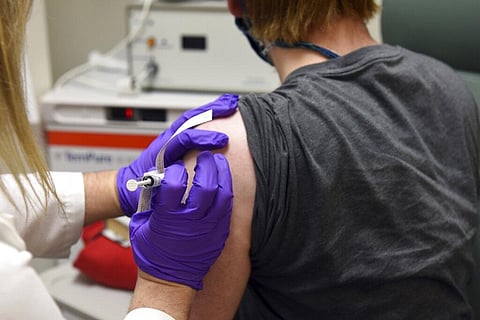

NEW DELHI: The UK on Wednesday became the first country in the West to approve a Covid-19 vaccine, making way for kickstarting mass vaccination, by granting emergency use authorisation to the coronavirus vaccine by Pfizer-BioNTech.
The vaccination of those identified as the most vulnerable is set to begin early next week.
Preliminary results of a late phase trial of the vaccine, which needs storage at extreme -70 degree celsius, by the pharmaceutical majors has shown 95 % efficacy against the infectious disease. It is close to the results shown by another US-based biotech company Moderna which was found to be 94.5 % effective in the final trial results.
Both vaccines have been developed using messenger RNA technology.
The UK's Medicines and Healthcare products Regulatory Authority granted the approval on Wednesday before decisions by the US and Europe.
The first doses of the vaccine would arrive in the country in the coming days, said the company in a statement. The UK has bought 40 million doses of the vaccine and as the vaccine is given in two doses, it means that it will be sufficient to inoculate 20 million or about 30 % of the country’s population.
"The government has today accepted the recommendation from the independent Medicines and Healthcare products Regulatory Agency (MHRA) to approve Pfizer-BioNTech's Covid-19 vaccine for use," the UK government said in a statement. "The vaccine will be made available across the UK from next week."
The UK's vaccine committee is slated to decide which priority groups will get the shots first and they are likely to include care home residents, health and care staff, the elderly, and people who are clinically categorised as vulnerable.